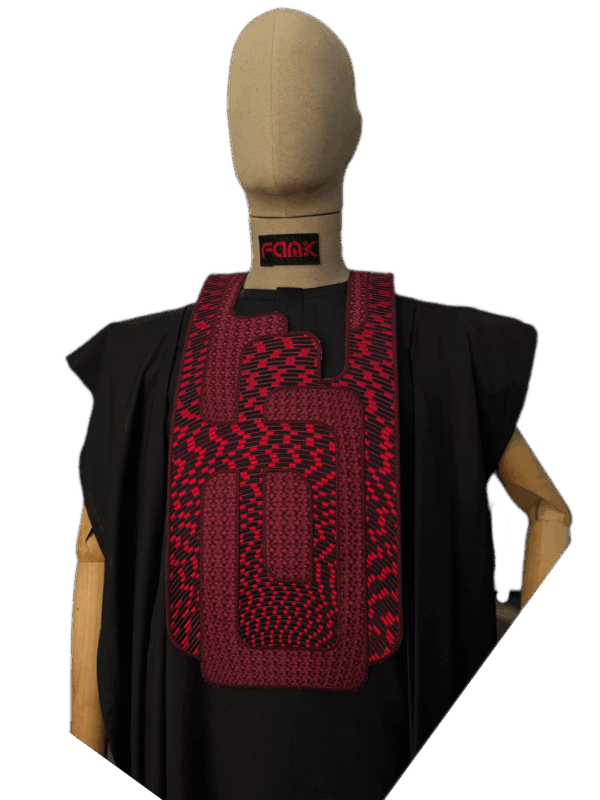Blog
How to Handle Difficult Clients as a Nigerian Tailor: 7 Expert Tips

You’ve seen this so many times: A client orders a custom Agbada, changes the design three times, demands it yesterday, and then attempts to haggle over the price you both already agreed on. Your blood pressure spikes, but you nod and smile because, well, business. Sound familiar? As a Nigerian tailor, handling difficult clients is part of the hustle. Even more in our fast-paced, owambe-driven market. But it doesn’t have to drain you. With the right approach, you can go from tense moments to loyal relationships without losing your cool. In this competitive landscape, staying calm and professional is a competitive edge. One tailor in Ibadan shared with us how one “problem” client became a repeat buyer after a single boundary-setting chat. These seven expert tips, drawn from seasoned pros across Naija, will help you handle difficult clients as a Nigerian tailor. Let’s dive in.
Why Handling Difficult Clients Matters for Your Fashion Hustle
Difficult clients are difficult to deal with; there is no sugarcoating it. They either come with last-minute demands, vague briefs, or payment delays, any of which can derail your day. Left unchecked, they sap your energy and hurt your reputation. But mastering how to handle difficult clients as a Nigerian tailor flips the script. It builds trust, gets you referrals, and saves time. Data shows businesses with strong conflict resolution retain more customers. In our tight-knit fashion scene, one happy client can mean a dozen new orders. These tips are your roadmap to turning headaches into opportunities.
Set Clear Expectations from the First Chat
Misunderstandings almost always lead to unnecessary drama. Start every project with crystal-clear terms to avoid surprises. The best way to handle it is to create a simple agreement—digital or paper—outlining deliverables, timelines, and costs. For example: “Custom gele, N25,000, delivered in 7 days, 50% deposit.”
Send it via WhatsApp or email before work begins. Some tailors we spoke with use a Google Form checklist for every order, detailing everything down to revision requests. There are even some who include lines such as: “Changes after approval may incur extra fees.” I
What this does is it sets boundaries politely. Review it together, confirm understanding, and save the chat. This tactic for handling difficult clients, as a Nigerian tailor, helps prevent most of the drama even before work begins.
Use Active Listening to Defuse Emotional Tensions
Picture this: You missed a deadline or got some colours mixed up, and the client got heated. What would be your first move? Yell back, ignore, or listen with empathy?
Our reaction to tensions or emotional outbursts, especially when we’re clearly in the wrong, can play a role in escalating or de-escalating them. It may be tough sometimes when you’re swamped and stressed out with deadlines all around (see our post on time management for tailors). Still, the best reaction to situations like these is to listen without interrupting. Let them vent, then repeat back: “I hear you wanted royal blue, not navy, and you’re upset about the event tomorrow.”
This shows you’re engaged. A designer once turned an angry bride around by actively listening to her concerns and offering a quick fix on the same day. They went on to have a relationship that spanned way beyond the wedding, and she even got referrals from the client. Practice this: Ear on, solutions off until they feel heard. It’s a core tactic for how to handle difficult customers as a Nigerian tailor, keeping emotions from escalating. Here’s your diffuse the tension checklist:
- Be empathetic
- Stay calm
- Listen actively
- Offer solutions
- Learn from mistakes
Master Polite, Firm Boundaries with Ready Scripts
Last-minute demands are probably the most annoying part of being a tailor or fashion designer. Suddenly seeing a WhatsApp message that reads: “I know we agreed on tomorrow morning but can you finish by tonight?” will do more than test your patience.
However, there is a method that can help you stay professional in such situations– it’s called scripting. A script is something you prepare beforehand to enable you to have a standardized response to certain potentially annoying requests. It could be something like: “I’d love to help, but changes to pick up time need at least 48 hours’ notice. Let’s lock in your next piece early for a smooth delivery.”
Practice these scripts on WhatsApp, email, or in person. Keep tone warm but non-negotiable. Offer an alternative: “I can prioritize your next order with a small fee.” It respects your time while keeping clients happy. You may not need to use them all the time, as you may have to make compromises here and there, but scripts are gold for how to handle difficult clients as a Nigerian tailor.
Offer Solutions, Not Excuses, for Quick Fixes
When things go wrong, perhaps a delayed delivery, skip the blame game entirely. Lead with a fix: “I see the agbada embroidery wasn’t perfect. I’ll rework it by tomorrow and add a free monogrammed handtowel as thanks for your patience.” Of course, you don’t always have to include a freebie, but you catch our drift?
Excuses or blame games do nothing but further enrage the client, and you honestly do not want that smoke. The best you can do after the deed has been done is find a way to get rid of the smoke, not to turn it into a full-blown fire. Act fast—within 24 hours or as soon as possible. This builds trust and shows you value their experience over ego.
Leverage Feedback to Prevent Future Frustrations
Feedback isn’t just for fixing, it’s also for preventing. After every order, send a quick WhatsApp: “Loved working on your luxury agbada—any tips for next time? Reply for a free fit guide.” Use Google Forms to collect specifics if needed.
Act on input publicly: “You asked for faster updates. We’re now texting progress shots.” This shows you listen, a key move for how to handle difficult clients as a Nigerian tailor, turning critics into fans.
This might seem a little extra to many, but you don’t know what gems you might find. You could find something that will turn your Nigerian fashion business around and earn you 5x your current revenue.
Stay Calm Under Pressure with a Pause Strategy
When a client’s demands feel endless and overwhelming, it’s best to take a breath before responding. Step away for five minutes. Reply with: “Thanks for the feedback. I’ll review and get back in two hours with options.”
No, it’s not because your “customer is always right.” But stepping away or taking a breath before responding can help you maintain professionalism in the face of what is clearly provocative. Practice this pause in high-stress moments. Make composure your superpower, and you’ll walk away from most situations with your reputation intact.
Know When to Walk Away from Toxic Situations
We’ve written a lot about keeping an annoying client, but there is a caveat. Not every client is worth keeping. If someone consistently disrespects your time—say, missing payments or berating staff—politely part ways. Try: “I appreciate your interest, but I don’t think we’re the right fit. I can recommend another tailor.“
Not only will this help your mental health, it will also free up time for better clients, boosting revenue in the process. Most importantly, document issues to justify your exit.
Conclusion
Handling difficult clients as a Nigerian tailor isn’t about biting your tongue. In the fashion business, it’s about smart systems and genuine care. These seven tactics empower you to stay calm, set clear boundaries, and turn challenges with difficult clients into opportunities for growth. Start with one this week: Try a clear agreement or a feedback poll. Track what shifts and the outcomes. Are you getting fewer complaints? More reorders? Your workshop deserves clients who respect your craft as much as you do. And when you work with the right clients, you get more in repeat business.
Which tactic will you test first? Drop it in the comments.













